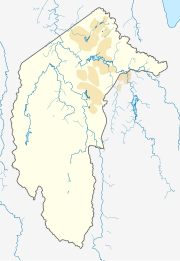Pearce, Australian Capital Territory
| Pearce Canberra, Australian Capital Territory | |||||||||||||||
|---|---|---|---|---|---|---|---|---|---|---|---|---|---|---|---|
 Pearce shopping village | |||||||||||||||
| Coordinates | 35°21′43″S 149°05′06″E / 35.362°S 149.085°E | ||||||||||||||
| Population | 2,687 (SAL 2021)[1] | ||||||||||||||
| Established | 1967 | ||||||||||||||
| Postcode(s) | 2607 | ||||||||||||||
| Elevation | 640 m (2,100 ft) | ||||||||||||||
| Area | 1.7 km2 (0.7 sq mi) | ||||||||||||||
| Location |
| ||||||||||||||
| District | Woden Valley | ||||||||||||||
| Territory electorate(s) | Murrumbidgee | ||||||||||||||
| Federal division(s) | Bean | ||||||||||||||
| |||||||||||||||
Pearce (/pɪərs/) is a suburb in the Canberra, Australia district of Woden.[2] The postcode is 2607. It was named after the longest-serving Senator and longest-serving Minister in Australia's federal history, Sir George Pearce.[3]
Pearce adjoins the suburbs of Torrens, Mawson and Chifley. It is bordered by Beasley St to the south, Melrose and Athllon drives to the east and the Mount Taylor nature reserve to the west; a green corridor forms the northern border with Chifley. Located in the suburb are Marist College, Melrose High School and Sacred Heart Primary School, a shopping centre and a neighbourhood oval.
Geology
[edit]
Deakin Volcanics green-grey and purple rhyodacite is in the northern half and under Quaternary alluvium in the south. In the upper parts of the suburb are two patches of Deakin Volcanics green grey, purple and cream rhyolite. Further up Mount Taylor are Deakin Volcanics red-purple and green grey rhyodacite and porphyry.[4]
References
[edit]
- ^ Australian Bureau of Statistics (28 June 2022). "Pearce (suburb and locality)". Australian Census 2021 QuickStats. Retrieved 28 June 2022.
- ^ Place names search, Geoscience Australia
- ^ "Suburb Name search results". ACT Environment and Sustainable Development. Retrieved 9 February 2014.
- ^ Henderson, G. A. M.; Matveev, G. (1980). Geology of Canberra, Queanbeyan and Environs (Map). 1:50000.

